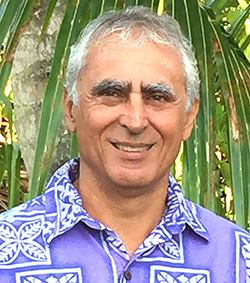President-Elect Barack Obama elicits a range of responses by observers of U.S. politics. At one end of the spectrum are his supporters who view him as the harbinger of great changes in the U.S. that will wipe away eight years of mismanagement under the Bush administration. His supporters view his political appointments as pragmatic choices that will overturn Bush administration policies on a range of issues such as the economy, energy, environment, health care, and a disastrous Iraq war. Supporters point to him as the physical embodiment of the kind of change called for by Martin Luther King where people are judged not by the color of their skin, but by the content of their character. For many of Obama’s supporters, he physically embodies a profound change in U.S. society and politics. They implicitly view him as a supporter of the deeper policy changes desired by social progressives in a range of areas. Obama instills in his supporters a sense of hope as perhaps no U.S. President before him has done.
At the other end of the spectrum are those that view Obama as a creature of corporate interests that pulled him out of obscurity to make him a media sensation. They claim that key phrases used in his Presidential campaign, ‘hope’ and ‘change’, are empty political slogans used to mask the reality that he will simply enact the policies of his corporate masters. Critics view internet driven scandals of Obama as evidence that he will be controlled behind the scenes by those with the ability to manipulate such scandals to their advantage. Furthermore, Obama’s critics point to his senior advisors as tainted political figures from earlier Presidential administrations whose loyalties lies in the corporations that have previously employed or funded them. The oil and armaments industries are regularly cited as among the most powerful lobby groups that routinely sway Presidential administrations to support military solutions to international problems. For Obama’s critics, there is little prospect of any real change by an Obama administration.
How does one reconcile these disparate responses to President Obama into a coherent understanding of the kind of changes to be ushered in by his upcoming Presidential administration? What I propose is a simple distinction in how we perceive the kind of changes that an Obama administration will introduce. We need to distinguish between “policy change” and “consciousness change”.
As far as policy change is concerned, an Obama administration cannot be expected to depart too drastically from current and previous presidential administrations in a number of key policy areas. While there might be incremental policy changes in areas such as science, the environment, education and health, the underlying way in which Washington does business will remain the same. Powerful lobbyists will sway political representatives to vote consistently on a range of policies that favor major corporate interests. As far as national security is concerned, an Obama administration will continue to be swayed by the same alliance of corporations, militant lobby groups and nations that supported the Iraq war, and pushed aggressively for a new war against Iran.
Taking a more aggressive military stance in Afghanistan seems to be the way Obama has decided to compromise for the moment with such an alliance of pro-war interest groups. However, a military build-up in Afghanistan will only continue to stoke tensions in the region. Renewed calls for a war against Iran will emerge and it remains to be seen how Obama will react to a concerted effort by pro-war interest groups in favor of militant policies. So in that sense, Obama’s critics have reason to be pessimistic about the prospects of any real change by his administration in key policy areas.
What needs to be considered, however, is the consciousness change that an Obama Presidential administration will usher in to the U.S. political system, and how this impacts on the policy process. Obama physically embodies the kind of racial equality that has long been a dream of the civil rights movement in the U.S. and more generally around the planet. In that sense, the mere inauguration of the first African American President will do much to reconcile historic racial animosities, and change the way Americans perceive themselves. Obama may or may not make any grand official gesture of racial reconciliation or apology for past injustices against African Americans. Nevertheless, his Presidency and the different minorities that comprise his Cabinet constitute a fundamental change in public attitudes towards minorities. For many civil rights supporters, an Obama Presidency symbolizes a fundamental consciousness change in the U.S. body politic where merit determines one’s suitability for leadership roles. That will inspire countless talented individuals in the U.S. and around the world to believe in themselves and their ability to reach their fullest potential.
President-Elect Obama has taken initiatives to have his administration become the most open and responsive to public interests than any previous Presidential administration. His transition website, Change.Gov, has adopted a number of social networking internet tools. Individuals can now give their opinions on a range of policy issues; vote on key questions they would like the administration to prioritize; make available many documents discussed in meetings with outside interest groups. Change.Gov even gives each individual their own webpage where they can track their opinions, votes, and dialogue concerning the Obama administration. The Obama transition team’s use of the social networking tools will give a younger generation of Americans a real sense that the Presidency is Open and responsive to its citizen’s concerns.
The above are some of the concrete consciousness changes that will be ushered in by an Obama Presidency. At this point, I would like to offer a brief overview of how consciousness change occurs at a global level and how this relates to an Obama administration.
(Note: You can view every article as one long page if you sign up as an Advocate Member, or higher).





